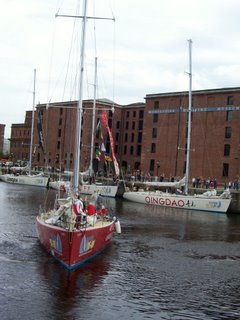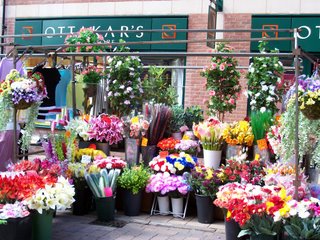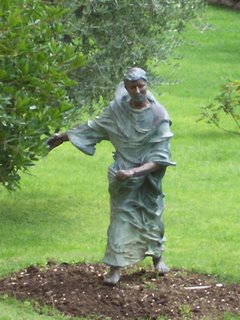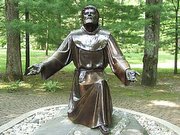Planting a tree
 Have you ever watched a new road being laid? There is a great deal of confusion. There are also been many traffic jams and delays.
Have you ever watched a new road being laid? There is a great deal of confusion. There are also been many traffic jams and delays.
However, one thing I have noticed is that, on the whole, most people are amazingly good-natured about all the disruptions caused by the road works. In fact, people have become amazingly polite. Suddenly, drivers will stop and signal for another driver to move into the correct lane. I suppose it's because they can see that there is a point to the disturbances. They can see that if, for the time being, people can be patient, the new road will be a great improvement to driving conditions. I'm always sorry to see the number of trees that are cut down in building a new road. I love trees and miss them. I'm glad to see efforts made to plant new ones, but it will be many years before they are big enough to provide the beautiful shade of their predecessors.
Planting a tree is a real sign of hope in the future. A tree takes so long to grow that the person who plants it does not always live to see it attain maturity.
Planting a tree is a sign that the planter believes there will be a harvest. A farmer would not plant his crops if he believed they would not grow. Similarly, trees are only planted in the understanding that there will be people alive to appreciate their beauty when the trees reach maturity.
We all need signs of hope in our lives. What would it be like if all there was to life were to be included in the dreary headlines we see in the daily newspapers? I think it would be depressing in the extreme. Talk about "wars and rumours of wars": there's hardly a day goes by without us hearing of robberies, violence, corrupt politicians and business people, war, AIDS and so on.
At one time someone published a newspaper that only contained good news. It went out of business within a couple of days. We've become used to hearing of all the "doom and gloom". We're like the drivers who deal with the daily traffic jams and forget that there are some days when the road is clear. We see the diversions and forget that there will be, one day, a new road. We see the trees that are cut down and don't notice the ones that are being planted or the trees that were not touched by the axe.
We need hope. We cannot survive in a world that holds nothing but despair. I think that's one of the reasons why God made trees. He's telling us to look at the present, but also to look ahead to the future, a future that we might not see, but which is full of hope. God is saying to us, "Plant now. Sow the seeds of hope in your own little world. Sow those seeds and one day they will grow strong and beautiful. Plant a tree of hope and nothing in this world will ever destroy you. Plant a tree of hope. Make your life a garden in which others will come to rest and find hope." God gave us trees as a sign of hope, his hope, his love for each one of us.
Lord, let me plant a tree of hope in my heart today. Help me to make my life a garden. Let me fill it with promises of love and peace. Let me plant the flowers of goodness, gentleness and kindness. Let me sow everywhere the seeds of joy. Help me, Lord, to plant a tree of hope in the heart of everyone I meet today.
Sr. Janet




















